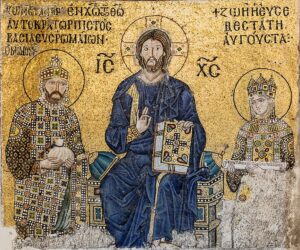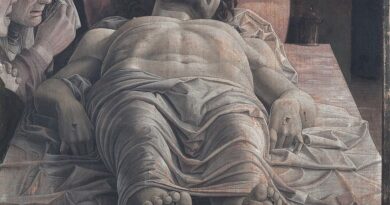Thirty-fourth Sunday of Ordinary Time. Solemnity of Christ King of the Universe/A
Massimo Palombella

Today’s feast, which concludes the Liturgical Year, was instituted by Pope Pius XI on 11 December 1925 with the Encyclical “Quas Primas”.
The “royalty” that we celebrate today is, paradoxically, strong and weak. In fact, all the strength, the omnipotence of the Christian God stops, does not proceed before our freedom. We celebrate the kingship of a God humiliated, slapped, spat on, crucified… a God who has stopped has taken his time, and is delivered before our freedom. Yet this evident weakness brings with it a silent and invincible strength. It is the strength that made Peter leave his little world as a fisherman to follow Jesus, that made Zacchaeus come down from the sycamore tree and give half of his goods to the poor, that made Matthew abandon the tax bench to follow Jesus, that led the sinner to curl up before Jesus and wash his feet with her tears, dry them with her hair and sprinkle them with perfumed oil…
It is the same force that continues today to “challenge” my life in a healthy way so that it is not consumed in a mediocre existence without horizons. It is a kingship of love and mercy that awaits me, that allows itself to be insulted and despised, that respects my times, my weaknesses, my inadequacies, my fears, my stubbornness… but it does not give up, it does not abandon me, it continues to stretch out its hand to lead me to be the person I can and should be, to live a life worth living.
The entrance antiphon, Introit, “Ingressa” (in the Ambrosian Rite), of today’s celebration is taken from Revelation (Rev 5, 12) with the following text:
“Dignus est Agnus qui occisus est,
acciperer virtutem et divinitatem et sapientiam et fortitudimem et honorem.
Ipsi Gloria et imperium in saecula saeculorum.”
(The Lamb who has been slain
is worthy to receive power, and divinity, and wisdom, and strength, and honour;
let glory and dominion be his for ever and ever).
The attached music, in Ambrosian Chant, is taken from the Antiphonale Missarum Iuxta Ritum Sanctæ Ecclesiæ Mediolanensis, published in Rome in 1935, which, to date, is the only “official” book of Ambrosian Chant for the Eucharistic Celebration. The live interpretation is by the Musical Chapel of the Duomo of Milan at the Chapter Celebration on 5 November 2023.
A blessed Sunday and heartfelt greetings.


